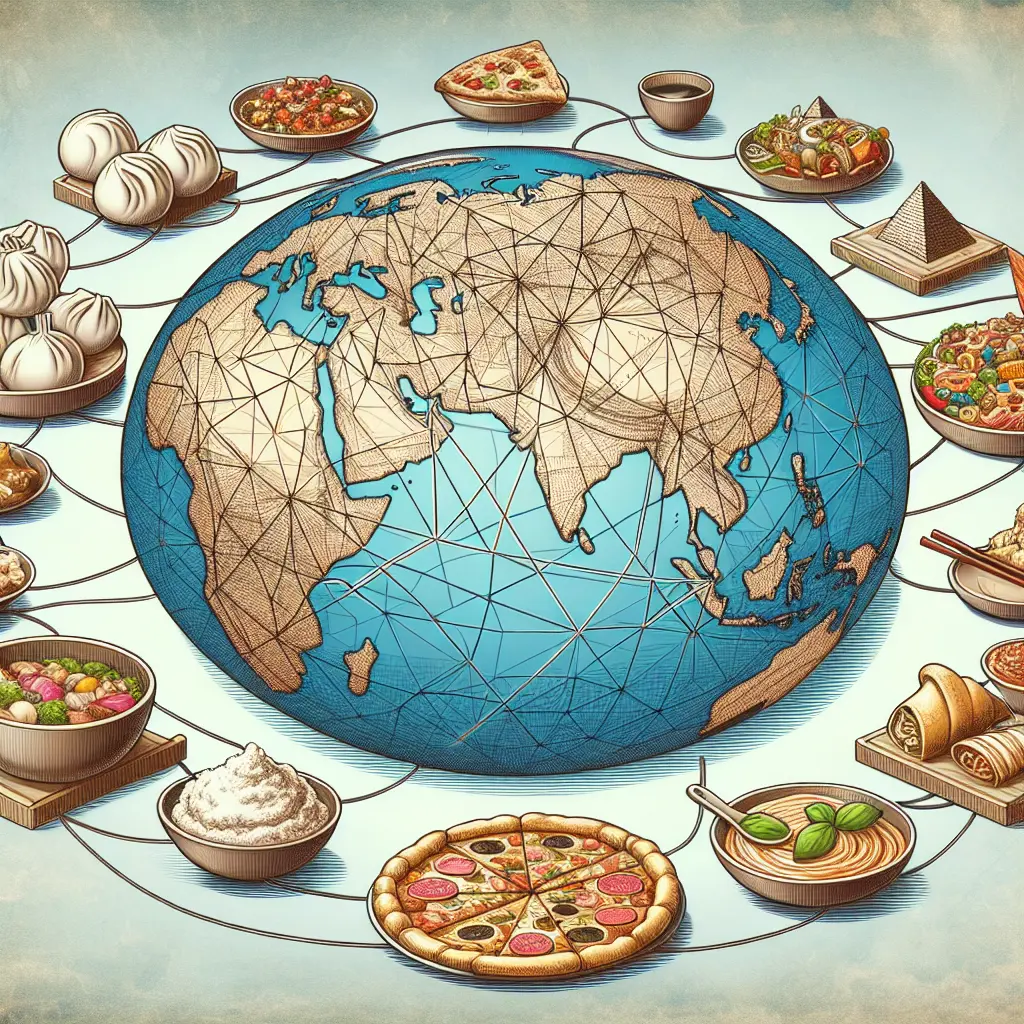
Today's vibrant global food culture is deeply rooted in the ancient trade routes that once connected diverse civilizations through commerce and culinary exchange. From the bustling bazaars of the Silk Road to the lively spice trade of the Indian Ocean, these historical pathways facilitated a rich exchange of food and culture that continues to influence our modern culinary traditions. These routes introduced exotic ingredients and sparked culinary fusions, creating a lasting impact on the world's gastronomy.
Ancient Trade Routes: Lifelines of Culinary Exchange
The ancient trade routes were pivotal in facilitating historical food exchanges that transcend time. Traders shared not just goods but also knowledge, recipes, and cooking techniques. Archaeological findings in Spain, revealing tools from over 7,000 years ago, offer insight into early societies' daily lives and agricultural practices (Archaeology News Network). These discoveries underscore the deep-rooted connections between ancient civilizations and the culinary exchanges that have shaped our modern traditions.
Spice Trade Impact: Transforming Global Palates
The spice trade's impact on culinary history is undeniable. Spices such as cinnamon, pepper, and cloves were once as valuable as gold, transforming mundane dishes into extraordinary feasts. These spices became integral to Silk Road cuisine and beyond, weaving into local dishes worldwide and fostering a global appreciation for diverse flavors. The historical village of Gracehill, awarded UNESCO World Heritage status, embodies the lasting influence of these exchanges (BBC).
From Ancient to Modern Cuisine: A Shared Culinary Heritage
The journey from ancient to modern cuisine reveals a shared culinary heritage that continues to inspire chefs and food enthusiasts globally. Penang's rich history, deeply rooted in its trade routes, serves as a testament to this enduring legacy (TIME). Chefs today draw from historical influences, merging tradition with modern twists to create dishes that honor their roots while appealing to contemporary tastes.
Silk Road Food Legacy: Inspiration for Chefs
The Silk Road food legacy remains a source of inspiration for chefs aiming to innovate while honoring tradition. Ancient culinary fusions, where ingredients and techniques from different cultures merged, are celebrated in modern kitchens worldwide. For example, student projects at the University of the Arts London showcase how traditional crafts can inspire contemporary creativity (Dezeen).
Cultural Food Exchange: Bridging History and Modernity
Ancient culinary exchanges continue to bridge history and modernity, fostering a global food culture that values diversity and innovation. Immersive activities offered by resorts highlight regional heritage and culinary traditions, underscoring the ongoing relevance of these trade routes in shaping travel and dining experiences (Condé Nast Traveler).
Conclusion: Embracing the Legacy of Ancient Trade Routes
Reflecting on the influence of ancient trade routes on modern culinary traditions reveals a rich tapestry of cultural exchange that has profoundly shaped our global food culture. These routes were more than commercial highways; they were conduits for knowledge, recipes, and culinary techniques that transcended borders and time. Sites like Gracehill remind us of their enduring legacy.
The journey from ancient to modern cuisine reflects a shared heritage that continues to inspire innovation. Chefs worldwide draw from historical influences to create dishes that honor their roots. As travelers seek connections to local cultures, immersive experiences highlight the relevance of these trade routes.
To further explore this topic, resources from National Geographic and Smithsonian Magazine offer insightful perspectives. Reflect on how these routes have influenced our world beyond the culinary sphere and share your insights or experiences.
Warm culinary regards,
Benjamin Hartley